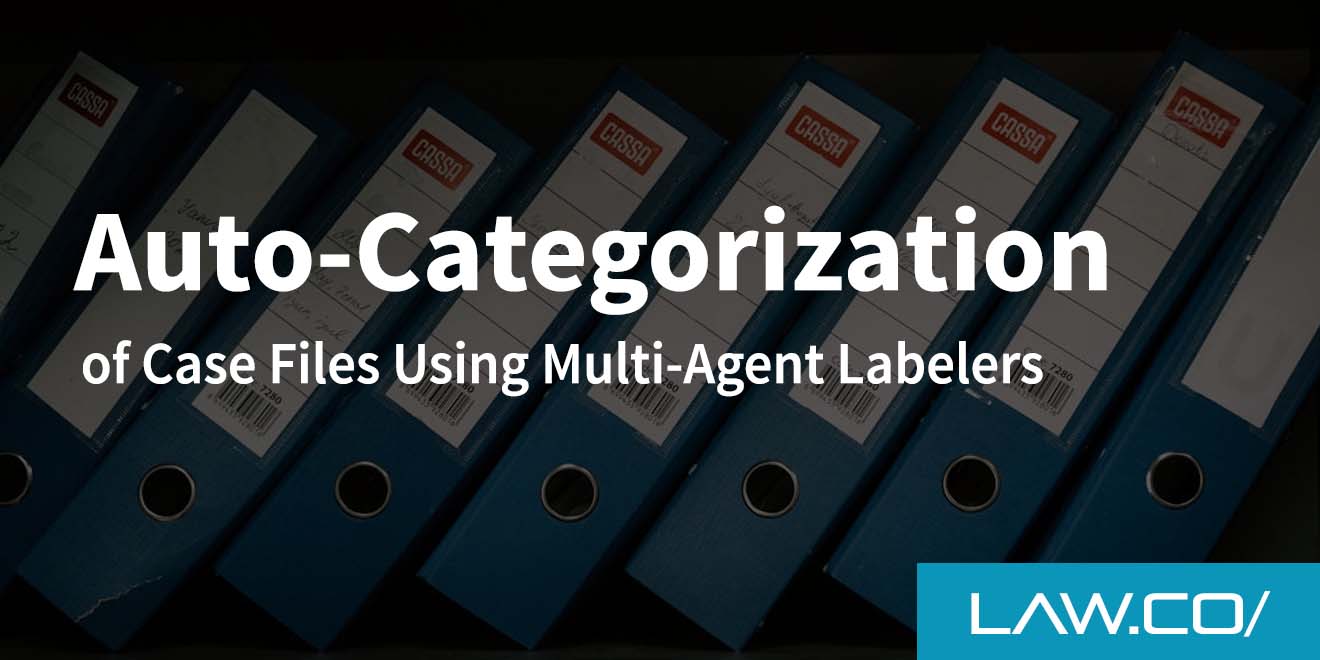

Blogging Strategies for Attorneys to Maximize their Impact
As attorneys, blogging can serve as a powerful tool to showcase knowledge and trials of your legal practice for potential clients. By prioritizing sound strategies to enhance your blogs, they too can both extend and support more structured campaigns in order to achieve lasting success.In this blog, we will explore key aspects needed for lawyers to create effective blogs with regard to target audiences, customer insights and language skills.We also consider points such as setting oneself apart from the competition and using visual aids hence delivering better results in aspect to viewers and readers of your blog. Overall, our aim is to promote valuable approaches you can take when considering setting up a blog for your law practice and improve the general outlook for it.
1. Write for Your Ideal Clients

Understanding your target audience
When blogging, it is essential to understand who your audience is and the dynamic of the digital landscape. Identify the popular content topics within your target industry or demographic and identify prominent influencers.Flesh out topics from in-depth legal research with AI and look into consumer buying decisions, preferred technology platforms, local trends, and lifestyle interests of your potential user group—these components should radiate throughout all blog posts.With tailored messages interweaved within cogent pieces written by experienced lawyers interested in long-term client relationships, the process can well-aim to establish coherent brand advocates for the practice.
Tailoring content to address their needs and interests
Effective attorneys know the importance of tailoring blog posts to meet the likings and needs of their ideal clients. Knowing who you are creating content for helps inform your choice of topics, messages, and tone employed when writing.Seeking feedback is another pivotal activity relevant to mastering such an art; ensure that choices inspired by individual data sets truly bring value capable of speaking on behalf of your readers.Write conversational pieces which align with these dynamics from either direct surveys or to larger extents by actively listening online to target conversation circles. Let your readers drive future decisions on growth trajectory for your blog through careful channel actualization capable of impressionably greeting desired outcomes and thus, prospective influences.
Creating relevant and valuable information for potential clients
Creating valuable information for clients is a key element of becoming an influential attorney online.It’s important to craft relevant content that addresses topics like commonly discussed challenges or opportunities in the field and offers solutions backed up by expert advice.Doing so will establish trust and demonstrate an understanding of the client’s needs, serving as another powerful tool for helping build relationships with them. Ultimately your content should be authentic, showcase expertise, provide valuable insights, share unique perspectives, and predispose clients to consider contact with you for their legal needs.
2. Simplify and Clarify

Avoid legal jargon and complex terminology
When creating content for a blog, attorneys need to simplify and clarify their writing. To write effectively, legal jargon and complex terminology should be avoided as much as possible Most website visitors struggle with understanding these terms or become overwhelmed.Stay away from Latin phrases or obscure language; in its place use plain English to explain all concepts and ideas relating to the law.Simplify by breaking down complex issues into parts that can be easily grasped...By making an effort to keep it simple yet relevant, sentences become engaging and allow readers to more clearly understand the blog’s content.
Use clear and concise language
Writing with clarity and simplicity is integral to creating a successful blog for attorneys. A useful tactic is to avoid complex jargon and terminology and ensure content provides succinct, yet meaningful insights.To achieve this, break down complex concepts into smaller, understandable pieces while simplifying technical language when possible.When both unfamiliar terms and everyday language are compartmentalized, readers can navigate articles more easily; thus allowing for the pivotal goal of client engagement through your blog’s content. Writing in simpler word phrases helps ‘relate’ the concept and helps ensure your content is accessible to the widest range of readers.
Break down complex concepts into easily understandable terms
As attorneys, it is beneficial to understand the importance of making complex legal concepts simple and understandable for your intended readers.Clients feel overwhelmed with the levels of knowledge and complexity within the law - therefore simplifying blog content should be a key approach for effective lawyer blogging.Breaking down technical terms or sensitive information into terms other than legal lingo can help improve reader retention and engagement significantly. Using analogies to explain difficult ideas, outlining topics versus utilizing large passages of text, and keeping words concise- all reduce complexity while readying it enjoyable to the reader.
3. Address Your Client's Pain Points

Identify common challenges and concerns faced by clients
For attorneys looking to garner more attention from potential clients, it is important to understand what challenges and concerns their target audience is faced with. By speaking directly about these issues in blog posts, lawyers can create content that provides direct value to the reader.This helps establish trust through the provision of valuable accurate information on common problems related to a particular area of law.Additionally, lawyers should strive for proficiency by providing solutions and advice on those issues unique only they can answer accurately or offer perspective on touch topics connected to them. This speaks of authority in that specialty which is always welcomed by clients new and old looking for sound counsel from experienced reliable lawyers.
Offer practical solutions and advice through blog content
When creating content for an attorney blog, it is important to explore potential opportunities to offer practical and helpful advice. Writing about solutions that directly address common challenges facing individuals or businesses offers added value which can help attract care from prospective clients while establishing trust with its audience.Case studies or in-depth legal explanations linked or followed by tangible advice can be incorporated as a way of emphasizing expertise above the practice-level work product so many attorneys strive to demonstrate.Ensure approachability amid carefully framed legal insight through simple and easy-to-follow solutions backed up by experienced estimations.
Showcase expertise and establish trust by providing valuable insights
Blogging provides attorneys with a unique platform to showcase their expertise and establish trust, which is essential in client-attorney relationship.By providing relevant and helpful insights that address the common pain points of your potential clients such as legal challenges faced or services provided, you can strongly demonstrate your ability as a lawyer and bolster credibility.Not only will this build trust, but also lead interested readers away from thoughts of potentially prying eyes on unwelcome topics straight into the cool embrace of lawyers experienced enough to advise them according to their own individual circumstances.
4. Set Yourself Apart with Unique Selling Points
Highlight distinctive qualities and strengths as an attorney
As attorneys, standing out in a crowded and highly competitive space is necessary for success. By highlighting the distinctive qualities and strengths which you possess as an attorney, this will help you to stand out from rival lawyers or teams.Focusing on skillful traits such as your past successes, history of satisfied clients, special areas of practice, certifications achieved or unique selling points make you more memorable to potential future clients searching in today's environment.Demonstrating these strong and individual characteristics are surefire way of setting yourself apart from established competitors and being recognized as the attorney of choice. All in all, distinctive features often determine an individual's—or a firm’s—true dimensions and its proficiencies of practice.
Emphasize areas of specialization and expertise
As an attorney, effective blogging can help to effectively differentiate yourself from competing services.You should be highlighting your unique selling points and emphasizing areas of specialization or expertise that let visitors know the type of situation 'you have seen before' or ‘that you could handle’ with confidence.Specializing in particular laws is a great way to make yourself stand out as different, knowledgeable, and trustworthy so potential clients will come right to you with their case. Broadly describing capabilities in certain service areas may attract relevant inquiries, build trust and leave visitors wanting to know more.
Differentiate yourself from competitors through unique perspectives
To effectively differentiate yourself from competitors when trying to attract potential clients, ensure your blog and associated content are emphasizing distinct capabilities that meet specific needs.Connect with readers disclosing authentic personal experiences related to case work or training that can showcase the unique expertise, knowledge, and insights within a defined area of practice.Take advantage of the flexibility this particular medium provides when offering points for reflection on topical issues impacting clients or connecting them with valuable resources otherwise not readily available elsewhere.
5. Incorporate Visual Examples

Utilize visual aids to enhance blog content
Using visual elements in blogs can help to engage readers, enhance content readability and communicate complex ideas in a straightforward manner.Appropriate visuals such as charts, images and graphs are helpful tools that supplement written material by providing clarity for potentially confusing concepts.Keeping the target audience in mind when searching for visuals is recommended to ensure they encompass applicable topics and appropriate levels of detail to further illustrate conclusions or advice coupled with case summaries gained from professional experiences.
Include relevant images, infographics, or diagrams
Including imagery within your blog, such as relevant photos, cartoons, diagrams, or infographics are effective considerations to aid visual understanding and guide readers.Visuals signal a sense of relevance and give a break in the text narrative which can help sustain reader engagement. Thus, utilizing visuals inside blog posts will not only enable more emphasis on essential points but also drives higher influence with content topics.
Enhance readability and engagement for readers
Adding visual elements to blog content can dramatically enhance engagement and readability. Images, diagrams, and infographics communicate concepts quickly and powerfully - bringing otherwise complex ideological representations to life in an easy-to-understand format.Garnering more attention from readers increases the likelihood they will process the information, take away useful knowledge, act on any advice offered and by extension retain a positive opinion of the author.
Conclusion
The successful implementation of these approaches can generate potentially meaningful client engagement. Blogging effectively accommodates the search for answers that today’s sophisticated consumers regularly perform online which ensures their introduction and trust-building begins long before they reach out to a lawyer.Adapting relevant language, unique selling points, ease of understanding and useful visual therapies elevates your message to produce much more powerful & effective marketing results for law firms. Wrapping up, influential blogs clearly are essential components for attorneys looking to maximize chances of success while creating adaptive long-term interactions with prospective clients.

%201.svg)



.jpg)






